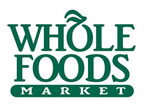CHICAGO, 2016-Sep-01 — /EPR Retail News/ — Whole Foods Market (Nasdaq: WFM), the world’s leading natural and organic foods grocer, opens its new 18,000 square foot store, located at 832 W. 63rd St. in Chicago’s Englewood neighborhood, Wednesday, Sept. 28, 2016. The much-anticipated store will provide residents in and around Englewood with fresh, high quality foods in a convenient and contemporary setting.
“At Whole Foods Market, we have a deep passion for fresh, flavorful, natural and organic foods. We are thrilled to open a store for the Englewood neighborhood and surrounding communities,” says Peter Aliu, Store Team Leader, Whole Foods Market Englewood. “Whether looking for high-quality meats and poultry or everyday pantry staples, residents from the health conscious to devoted food enthusiasts will find what they’re looking for.”
To celebrate opening day, Whole Foods Market will host its version of a ribbon cutting called a “Bread-Breaking Ceremony” with Whole Foods Market Team Members and Englewood neighbors beginning at 8:30 a.m. Doors open and shopping officially begins at 9 a.m.
The Whole Foods Market experience is about the joy of eating and living well in good health. Whole Foods Market invites shoppers to touch, taste, and experiment with a wide variety of natural and organic foods free of artificial colors, flavors, preservatives and sweeteners. Much more than a grocery store, Whole Foods Market is a community partner, a trusted resource for nutrition and health and a community-gathering place.
When Whole Foods Market first opened its doors in 1980, a simple mission was set: to provide a simpler alternative to the conventional grocery options available at that time. That mission still rings true today as Whole Foods Market remains a uniquely mission-driven company with a purpose of not only to generate profits but to create value for all major stakeholders, all linked interdependently by a passion for natural and organic foods and respect for the planet.
“Whole Foods Market is more than a grocery store. It is a driving force that is changing the way people think about what ingredients are in their food and where their food comes from,” says Aliu. “We strongly believe that food in its purest state – free of artificial flavors, sweeteners, preservatives, colorings and trans fat – is the best tasting and most nutritious food available. The spirit and principles that first drove people to shop a tiny natural and organic foods store still apply today.”
Whole Foods Market’s commitment to transparency and environmental responsibility is evident in the many programs available to shoppers to help them know what is in their food, where it came from and how it impacted the environment including:
- Whole Foods Market’s Quality Standards for food prohibit artificial flavors, colors, sweeteners, preservatives or hydrogenated fats. The Whole Foods Market Quality Standards team works with researchers and industry leaders to decide which food ingredients are approved for Whole Foods Market food products.
- Whole Foods Market helped pioneer the organic movement and offers an extensive, ever-growing variety of organic products. Whole Foods Market helped to develop and continues to work closely with the USDA on U.S. organic standards that make it easier for Americans to trust the meaning of the organic label.
- The Whole Foods Market Responsibly Grown rating system uses well-regarded scientific input to rate fresh produce and flowers based on farming practices that impact our environment and human health. The program bans the use of eight of the most hazardous neurotoxins allowed in US agriculture; rewards growers for organic certification and sustainable farming practices; and helps shoppers make more informed produce and floral choices. The Responsibly Grown system addresses these areas of sustainability: pest management; farmworker welfare; water conservation and protection; soil health; ecosystems and biodiversity (including pollinator protection); waste reduction; and air, energy and climate.
- All of the beef, pork, chicken and turkey in the Whole Foods Market meat department comes from farms that have achieved certification to Global Animal Partnership’s 5-Step™ Animal Welfare Rating program. That means shoppers can learn how the animal was raised for the meat they are buying. In addition to species-specific standards, general animal welfare standards ensure animals have enough space to perform their normal behaviors and that prohibit confinement or tethering that prevents freedom of movement.
- Whole Foods Market has the highest quality standards for seafood in the grocery business. Whole Foods Market was the first U.S. retailer to offer wild-caught seafood certified by the Marine Stewardship. In addition, each store clearly labels seafood with the country of origin and whether the fish is fresh or previously frozen, farm-raised or wild-caught, and also indicates the sustainability status of everything sold in the fresh case. Also, Whole Foods Market is the only national grocer to completely stop selling red-rated wild-caught seafood. This commitment means that wild-caught seafood is sourced from areas with the best-managed fisheries. Responsibly Farmed seafood provides a consistent, high quality, year-round supply of healthy and delicious protein raised by farmers who are leaders in environmentally responsible aquaculture. Whole Foods Market’s farmed seafood standards were created after intensive, multi-year processes that included extensive research on fish and mollusk farming, review of all the best available science, consultation with the top scientists and environmental organizations, and visits to farms worldwide.
- The Whole Trade® Guarantee ensures that products including chocolate, coffee, produce and flowers are grown according to strict criteria for ethical trade, earth-friendly farming and the highest quality.
- In January 2008, Whole Foods Market was the first national grocer to eliminate disposable plastic grocery bags.
- Using USDA-approved third-party organic certifier California Certified Organic Farmers (CCOF), Whole Foods Market was the nation’s first national certified organic grocer after the National Organic Standards were launched.
Whole Foods Market hired approximately 90 Team Members for Whole Foods Market Englewood.
Contact:
Allison Phelps
Allison.Phelps@wholefoods.com
312.799.5600
Source: Whole Foods Market
